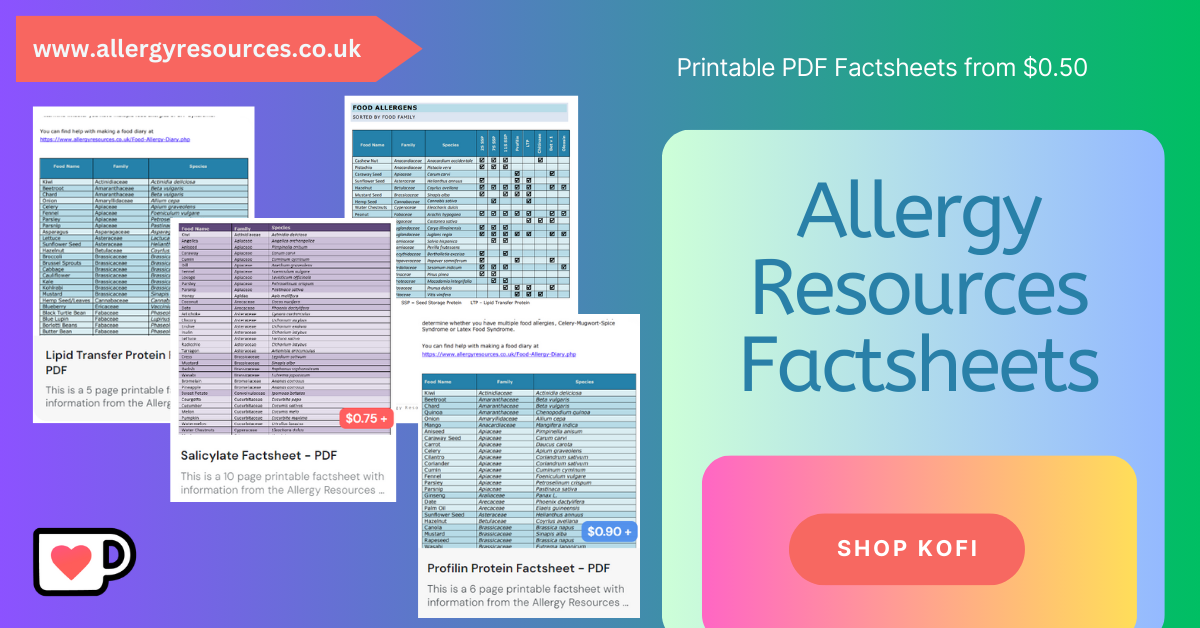
SORGHUM ALLERGY
Key Allergens
Sorghum is a grain in the Poaceae family of cereals. Other plants in this family include corn, wheat, barley, rice and rye.
Sorghum contains profilin proteins and polcalcin proteins. These are both panallergens which can cause allergies over large groups of plants.
Although it is a cereal sorghum does not contain any of the proteins which are associated with coeliac disease, so is gluten free and can be eaten by people with this immune disorder.
Sorghum contains profilin proteins and polcalcin proteins. These are both panallergens which can cause allergies over large groups of plants.
Although it is a cereal sorghum does not contain any of the proteins which are associated with coeliac disease, so is gluten free and can be eaten by people with this immune disorder.
Food Intolerances



Sorghum is a low FODMAP food. FODMAP stands for Fermentable oligosaccharides, disaccharides, monosaccharides and polyols. Foods high in FODMAPs can cause symptoms of food intolerance, affecting the gastro intestinal system and this can be mistaken for a true IgE food allergy.
Sorghum is also low in salicylates. Salicylates have the potential to cause gastrointestinal food intolerance symptoms in people who are sensitive to salicylates.
Sorghum is low in lectins>, which can be another cause of food intolerance. Cooking foods with lectins makes them more digestible and can reduce the symptoms of food intolerance.
You can read more about Food Intolerances on the dedicated Food Intolerance Page.
Associated Syndromes
As a food sorghum is not currently associated with any allergic syndromes.
Sorghum pollen is associated with asthma, rhinconjunctivitis and hayfever (rhinitis).
Sorghum pollen is associated with asthma, rhinconjunctivitis and hayfever (rhinitis).
Cross Reactivity
Other plants in the Poaceae family of plants include barley, corn, durum wheat, lemongrass, oats, rice, rye and wheat. If you react to one you may react to another. Read more about Grain Allergens and Pseudocereals.
Other plants which contain profilins are celery, peanut, soyabeans, walnut, lupin, almonds, mustard and hazelnut. Fruits and vegetables containing these proteins are kiwi, pineapple, chilli, melon, orange, strawberry, lychee, apple, banana, aubergine (eggplant), peach, pear, tomato, dates, cherry and carrot. Profilin proteins are also found in barley and wheat.
Pollens which contain profilin are pigweeds, ragweed, mugwort, sugar beet, birch trees, hemp, crocus, grass pollen, sunflower, olive, rice, plantain, poplar, mesquite, oak and maize.
Other pollens which contain polcalcins are alder, ragweed, wormwood, birch, bermuda grass, olive, juniper, lilac and timothy grass.
These food lists are not exhaustive, the most up to date information is on the Cross Reactivity Tool.
Other plants which contain profilins are celery, peanut, soyabeans, walnut, lupin, almonds, mustard and hazelnut. Fruits and vegetables containing these proteins are kiwi, pineapple, chilli, melon, orange, strawberry, lychee, apple, banana, aubergine (eggplant), peach, pear, tomato, dates, cherry and carrot. Profilin proteins are also found in barley and wheat.
Pollens which contain profilin are pigweeds, ragweed, mugwort, sugar beet, birch trees, hemp, crocus, grass pollen, sunflower, olive, rice, plantain, poplar, mesquite, oak and maize.
Other pollens which contain polcalcins are alder, ragweed, wormwood, birch, bermuda grass, olive, juniper, lilac and timothy grass.
These food lists are not exhaustive, the most up to date information is on the Cross Reactivity Tool.
Resources
Websites
Allergen Encyclopedia - Sorghum halepense
Articles and Journals
Sorghum- and millet-induced anaphylaxis: A case report, 2024
Incidence of grass and weed sensitization in Bangkok, Thailand: a clinical study, 2024
Isolating the species element in grass pollen allergy: A review, 2023
A Pilot Study to Identify Grass Species That Mediate Pollen Allergy in Thailand, 2023
Fermented Food in Asthma and Respiratory Allergies — Chance or Failure? 2022
A study on development of Gluten free pasta and its biochemical and immunological validation, 2013
Let me know if you found any of these interesting or useful.
If you spot an article or research that you think is interesting you can message me or tag me on Facebook, Instagram or Twitter - links at the bottom of the page.